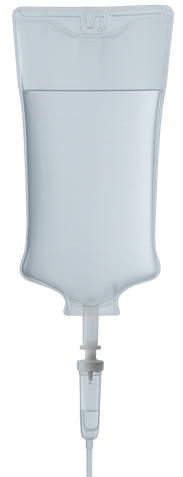BY ANH-USA ON
What you don’t know about this class of drugs can ruin your health. It can even kill you.
We’ve written before about the dangers of acid blockers and how, in many cases, they are likely exacerbating stomach pain while causing serious disease. New research gives us even more reason to stay away from these dangerous drugs.
Did you know that acid blockers don’t merely shut off acid pumps in the stomach? Recent research warns that they also shut off production of acid inside the mitochondria every cell in our bodies!
Yikes. The health of our mitochondria determine our overall health. Yet here we are blithely interfering with their cellular energy production and detoxification processes.
Sometimes our cells need more acid and sometimes the opposite. But you can be sure that no drug company knows (or cares) precisely what your mitochondria need to keep your cells happy and flourishing. Each cell may have hundreds or even thousands of mitochondria.
As if this news is not scary enough, in his most recent newsletter (Second Opinion, August 2016), Dr. Frank Shallenberger discusses a brand new study showing that acid blockers do not simply causeacute kidney disease (acute interstitial nephritis)—they may also be associated with chronic kidney disease.
The study in question looked at 10,482 men and women (average age of 63, with average kidney function) over a period of fifteen years. The researchers found that, compared to those who were not taking acid blockers (proton pump inhibitors), those taking them were up to 76% more likely to get chronic kidney disease. The study also found that the risk was dose-related—the more acid blockers patients took, the higher the incidence of this kidney disease.
Kidney disease is only one among many known health problems caused by acid blockers, including higher risks for dementia, heart attacks, pneumonia, heart palpitations, muscle cramps, convulsions, weak bones, and more. Some of the problems may be linked to the difficulty we have assimilating and using protein and minerals when we deliberately reduce the stomach acid (as we do with these drugs) that is either needed for digestion or for producing enzymes necessary for digestion.
And, yes, acid blockers often make the original problem—stomach pain—worse. As we’ve pointed out before, too little stomach acid is more often than not the culprit behind indigestion and stomach pain. Taking acid blockers in these cases offers temporary relief but over time just makes the problem much worse. Low stomach acid—also called hypochlorhydria—affects about half of the population, especially middle-aged and older people, the ones who typically develop stomach issues.
The bottom line: there are lots of reasons to be wary of taking acid blockers, and we recommend consulting an integrative physician before deciding to use them even on a short term basis. Did we mention that once started, they also cause dependency and can be hard to get off of?






